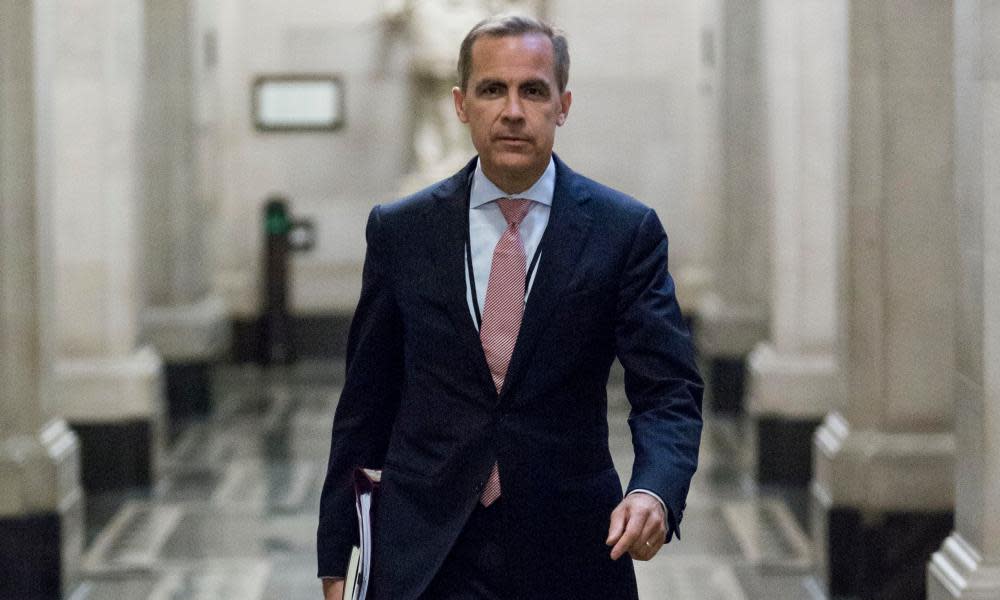Phew, the Bank would deploy common sense on no-deal Brexit

A no-deal Brexit, in economic terms, would be a trip into the unknown and would very likely involve a severe shock. Even the sober sub-set of Brexit promoters concedes the latter short-term point. But at least one likely outcome is becoming clearer: the Bank of England would not make things worse by cranking up interest rates.
The idea that it might was a strange notion entertained by Threadneedle Street last November as it sketched various scenarios for the UK’s departure from the European Union. In the most hellish projection, GDP was seen as falling by 8%, meaning a worse recession than the one that followed the 2008-09 financial crisis.
But, critically, this 8% catastrophe assumed that the Bank would react to the decline in the pound after a no-deal Brexit by raising interest rates to combat the surge in inflation. Indeed, a Bank rate at 5.5%, a monstrous leap from the current 0.75%, was imagined.
This plotline for rates always looked absurd. A no-deal outcome would surely require the Bank to deploy common sense and look beyond its inflation-fighting mission. Protecting jobs and growth would become the priority, as its fuller mandate allows, meaning no short-term increases in the cost of borrowing.
Thank goodness, then, that Gertjan Vlieghe, one of the Bank’s rate-setters, is alert to the point. “In the case of a no-deal scenario I judge that an easing or an extended pause in monetary policy is more likely to be the appropriate policy response than a tightening,” he said in a speech on Thursday. Well, quite.
Governor Mark Carney has been unfairly criticised at times for his comments on Brexit, but that November document was not his finest hour. Even his colleagues now seem to think the “worst-case” scenario, with interest rate soaring, was over-egged. A no-deal exit would be bad enough; there was no need to exaggerate.
AstraZeneca finally proves it was right to reject Pfizer
See, AstraZeneca was right to give Pfizer’s bid the brush-off back in 2014. The UK pharmaceutical giant is now achieving sales growth again, for the first time in a decade, just as chief executive Pascal Soriot promised it would. In the final quarter of 2018, products sales improved 8%, helped by a big boost from the new cancer drugs Tagrisso and Lynparza.
It’s taken a very long time, sceptics might counter, which would be a fair point. The shares, up 7% on Thursday, have only just cleared £60 convincingly, whereas Pfizer was talking about offering £55-ish half a decade ago. Take account of the time value of money, as investment bankers put it, and you could construct an argument that shareholders would have been better off taking Pfizer’s cash and shares.
But that would be the wrong way to look at things. Drug development is a long-term game. It can take a decade to get an early-stage compound from the lab to the market, and the reinvention of AstraZeneca’s pipeline should be judged over similar horizons. The group was clobbered by the patent expiry on the former blockbuster cholesterol drug Crestor; recovery was never going to arrive quickly.
Back in 2014, Soriot’s main promise was that the group could achieve annual sales of $45bn (£35bn) in 2023, which still sounds slightly hopeful given that the tally for 2018 was $22bn. But he’s sticking to the target and, as the now-rising share price indicates, the market thinks AstraZeneca will at least get close now that it has new drugs on the market with more to follow.
Soriot remains one of the FTSE 100’s most over-rewarded bosses - his £9.4m in 2017 and £13m in 2016 were rewards for success before it had happened, as rebellious investors rightly argued. But that commercial success may now finally be appearing (heaven knows what he’ll collect when it does), which is clearly good news for the UK life sciences industry.
AstraZeneca still has to convert its new sales momentum into extra profit, and then reward patient shareholders with a better dividend. But rejecting Pfizer was definitely the correct choice.
Stick to making bridges and widgets, not bad acronyms
Oh dear, the venerable Engineering Employers’ Federation, or EEF, is rebranding. It wishes to be known as Make UK in future. Are the engineers trying to invoke Trump-style visions of making the UK great again, or have they succumbed to the horrible habit of turning verbs into nouns? Whatever the explanation, the new name is ugly.
The EEF is clearly not a student of newspaper style either. On second mention, Make UK can become MUK, as in “Where there’s MUK, there’s brass”.
• Sign up to the daily Business Today email here or follow Guardian Business on Twitter at @BusinessDesk.

 Yahoo News
Yahoo News 
